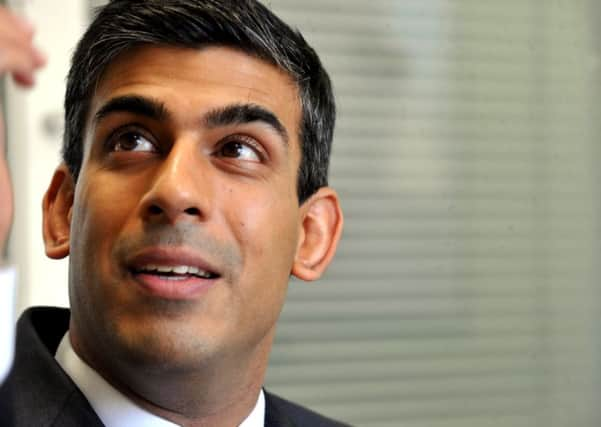Minister pledges funding boost for rural counties after cutbacks


Local government minister Rishi Sunak has told North Yorkshire County Council members an impending announcement on how councils’ funding was calculated would see a “huge improvement” for England’s largest county.
Richmond MP Mr Sunak said the Fairer Funding Formula review had identified issues such as the higher cost of providing services in rural areas as the authority’s leaders highlighted its struggle to complete the £172m of budget cutbacks triggered by austerity.
Advertisement
Hide AdAdvertisement
Hide AdAt a meeting of the council’s Richmond constituency committee, the authority’s leader, Coun Carl Les, told Mr Sunak: “We have made savings. We have been very successful at making savings, but are coming to the end of where we can find the savings now.”
Deputy leader Coun Gareth Dadd said urban areas were given eight times the weighting rural areas in the funding formula calculation, adding he hoped “such facts weighed heavily” on Mr Sunak’s mind when setting the formula, which is set to come into effect in 2021.
Coun Dadd said: “Any change in the division of that cake will face opposition from some other authorities, especially the metropolitan areas, but they have probably had more of the cake than they deserved previously and a wrong will have been put right.”
Studies by the council have shown adult social care workers in the county spend 45 minutes on average as “downtime” for each visit in rural areas, compared to 20 minutes in urban areas.
Advertisement
Hide AdAdvertisement
Hide AdThis “rural premium” costs the council more than £2.5m per annum to provide care in people’s home and a similar sum for residential services, while the council also pays £2.8m in transporting users to day centres.
In addition, the average hourly rate paid for domiciliary care is 17 per cent higher in deeply rural areas than urban areas.
Recent research by the County Councils Network found, on average, rural county councils received £261 a year per person less than their urban counterparts.
Mr Sunak told members: “I want to make sure our formula captures the different unit costs of labour in different parts of the country. I want it to capture these journey times, specifically for rural areas and make sure it is adequately factored into the formula.”
Advertisement
Hide AdAdvertisement
Hide AdTo ensure civil servants understood the challenges facing North Yorkshire, Mr Sunak said he had sent his civil officials on a field trip to the county.
He said: “I’m confident the new funding formula will be a huge improvement of where we are today and address many of the issues you have raised.”
The news comes after it was reported England has been “left behind in the race” to resolve its social care funding problems, according to a charity.
Age UK said an entire generation of elderly people had “lost out” after various proposed care reforms had been left to “gather dust”.
Advertisement
Hide AdAdvertisement
Hide AdThe comments come after a new report compared social care systems across the UK, Germany, France, Spain, Italy and Japan. The authors concluded England comes across “rather badly” compared with other systems.